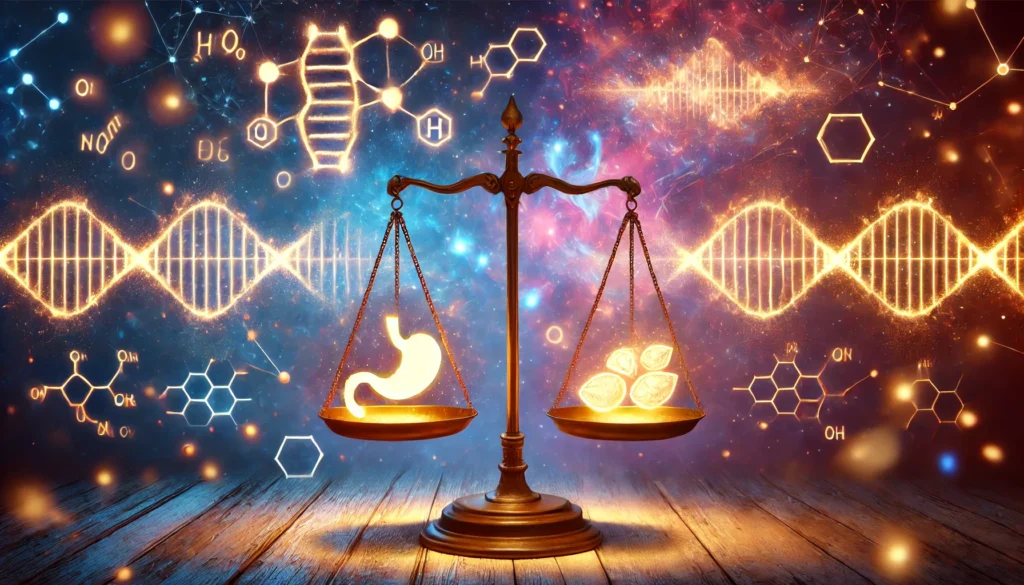Understanding the intricate relationship between sleep deprivation and hunger is crucial for anyone seeking to optimize their health and well-being. In our fast-paced world, sleep often takes a back seat to other priorities, leading to a cascade of physiological and psychological effects, one of which is altered hunger signals. This article delves into how sleep deprivation can affect your appetite, offering insights grounded in scientific research and practical advice.
You May Also Like: Understanding the Impact of Chronic Sleep Deficiencies
The Science Behind Sleep and Hunger
Sleep is a fundamental biological process essential for maintaining homeostasis in the body. It is during sleep that the body repairs itself, consolidates memories, and regulates hormones that control hunger. The primary hormones involved in hunger regulation are ghrelin and leptin. Ghrelin, often termed the ‘hunger hormone’, signals the brain to stimulate appetite. Leptin, on the other hand, suppresses appetite and signals satiety.
Hormonal Imbalance and Its Effects
When sleep is insufficient, the balance of these hormones is disrupted. Research has shown that sleep deprivation increases levels of ghrelin while decreasing leptin levels, leading to increased hunger and appetite. This hormonal imbalance is a key factor in understanding how lack of sleep affects eating behavior. The increase in ghrelin levels signals the brain to initiate hunger responses more frequently, even when the body doesn’t require additional energy. Meanwhile, the decrease in leptin fails to adequately signal fullness, causing individuals to consume more than necessary.
The Role of Cortisol
Another hormone that plays a role in hunger regulation during sleep deprivation is cortisol. Known as the stress hormone, cortisol levels can rise when an individual is sleep-deprived. This increase can lead to heightened cravings, particularly for high-sugar and high-fat foods, as the body seeks quick sources of energy. Elevated cortisol levels can also interfere with insulin function, potentially leading to metabolic disturbances and further complicating hunger regulation.
Sleep’s Role in Metabolic Rate
Sleep does not only affect hunger through hormone regulation but also impacts the metabolic rate. During deep sleep phases, the body efficiently uses energy, which can influence how food is metabolized. A lack of adequate sleep can lead to a reduction in metabolic efficiency, promoting weight gain as calories are stored rather than burned. This inefficiency is compounded by the increased caloric intake driven by hormonal imbalances, creating a cycle that can be difficult to break.
Can Sleep Deprivation Cause Loss of Appetite?
While increased appetite is a common consequence of sleep deprivation, some individuals may experience a reduced appetite. Stress and the psychological toll of sleep deprivation can sometimes lead to a loss of appetite. The body’s response to stress includes the release of cortisol, which can suppress appetite in the short term. However, chronic sleep deprivation may lead to overeating as the body seeks energy to compensate for the lack of sleep.
Short-Term Appetite Suppression
In the short term, the stress of sleep deprivation might actually suppress appetite for some individuals. This response is usually temporary and can be attributed to the body prioritizing immediate survival over hunger. In moments of acute stress, energy is diverted away from digestion to other bodily functions, which can lead to a temporary decrease in appetite.
Long-Term Effects and Overcompensation
Over time, the body’s need for energy due to lack of sleep can lead to overcompensation. This results in increased hunger and potential weight gain as the body attempts to make up for the energy deficit caused by inadequate sleep. The cycle of initial appetite suppression followed by increased hunger can create a challenging pattern for those trying to maintain a healthy diet.
Psychological Factors
Sleep deprivation also affects mood and cognitive function, which can indirectly influence appetite. Feelings of fatigue and irritability may reduce the desire to eat, especially in social settings. Conversely, some people may turn to food as a source of comfort or a way to cope with stress, leading to irregular eating patterns.

Historical Context: Sleep and Human Evolution
Throughout human evolution, sleep has played a critical role in survival and adaptation. Our ancestors relied on sleep to conserve energy, enhance cognitive function, and ensure alertness for hunting and gathering. The natural cycles of light and dark regulated sleep patterns, aligning them with the Earth’s rotation.
Sleep Patterns of Early Humans
In the past, humans had sleep patterns that were closely tied to natural light cycles. The absence of artificial lighting meant that people went to bed shortly after sunset and woke up with the sunrise. This alignment with natural light allowed for a consistent and restorative sleep schedule, crucial for survival in a predator-rich environment.
The Impact of Agricultural and Industrial Revolutions
The agricultural revolution changed sleep patterns as human societies became more structured around farming schedules. With the advent of the industrial revolution, the introduction of artificial lighting and shift work further disrupted natural sleep cycles. People began to sleep less and during irregular hours, which marked the beginning of modern sleep challenges.
Sleep in the Digital Age
Today, the digital age presents new challenges to sleep hygiene. Exposure to screens and artificial light extends day into night, disrupting the circadian rhythm. This technological interference, combined with the demands of modern life, often leads to chronic sleep deprivation, a state that is far removed from the natural sleep patterns of our ancestors.
Current Trends: Sleep Deprivation in Modern Society
In today’s society, sleep deprivation is an epidemic. The demands of work, social commitments, and digital distractions contribute to insufficient sleep. Studies indicate that a significant portion of the population fails to achieve the recommended seven to nine hours of sleep per night.
The Prevalence of Sleep Disorders
The incidence of sleep disorders such as insomnia and sleep apnea has risen significantly. These conditions not only reduce sleep quality but also impact overall health. Insomnia, characterized by difficulty falling or staying asleep, is often exacerbated by stress and lifestyle factors, while sleep apnea disrupts sleep through breathing irregularities.
Consequences of Chronic Sleep Deprivation
Chronic sleep deprivation has far-reaching consequences, including its impact on hunger and eating habits. It is linked to numerous health issues such as obesity, cardiovascular disease, and diabetes. The disruption of sleep and its effects on appetite regulation contribute to the rise in obesity rates, as individuals consume more calories than necessary.
Societal and Cultural Influences
Cultural attitudes towards work and productivity often glorify busyness and undervalue rest. This societal pressure can lead to prioritizing work over sleep, further perpetuating the cycle of sleep deprivation. Additionally, the rise of global connectivity means that people are often engaged in activities across different time zones, disrupting their natural sleep-wake cycles.
Does Lack of Sleep Cause Loss of Appetite?
The question of whether lack of sleep causes loss of appetite is complex. While some individuals may experience reduced hunger due to stress and cortisol release, the predominant effect of sleep deprivation is increased appetite and cravings for high-calorie foods. This is largely due to the hormonal imbalances of ghrelin and leptin, as previously discussed.
Individual Variations in Appetite Response
There is significant individual variation in how people respond to sleep deprivation in terms of appetite. Some may find their hunger diminishes, particularly during periods of acute stress. Others may experience heightened cravings for comfort foods, often rich in carbohydrates and fats, as a means of coping with fatigue.
The Role of Sleep Quality
The quality of sleep, not just the quantity, plays a crucial role in appetite regulation. Poor sleep quality, characterized by frequent awakenings or lack of deep sleep, can exacerbate hormonal imbalances, leading to increased hunger. Ensuring both adequate and restful sleep is essential for maintaining a balanced appetite.
Consulting Healthcare Professionals
For those experiencing persistent appetite changes due to sleep deprivation, consulting with a healthcare professional can provide valuable insights. A tailored approach, considering factors such as stress, anxiety, and individual health needs, can offer solutions to improve both sleep and appetite.

Practical Advice for Managing Sleep and Hunger
1. Prioritize Sleep Hygiene: Establish a consistent sleep schedule, create a relaxing bedtime routine, and optimize your sleep environment to promote restorative sleep.
- Consistent sleep schedules help regulate the body’s internal clock, making it easier to fall asleep and wake up naturally. Developing a bedtime routine signals the body that it’s time to wind down, reducing stress and promoting relaxation. Consider limiting screen time before bed and creating a dark, cool, and quiet environment to enhance sleep quality.
2. Monitor Eating Patterns: Pay attention to hunger cues and avoid using food as a substitute for sleep. Focus on balanced meals that provide sustained energy.
- Being mindful of eating patterns can prevent overeating, especially during times of sleep deprivation. Emphasize meals rich in complex carbohydrates, proteins, and healthy fats to provide lasting energy and avoid the temptation of quick-fix snacks. Keeping a food journal can help identify patterns related to sleep and hunger.
3. Manage Stress: Practice stress-reducing techniques such as meditation, yoga, or deep breathing exercises to mitigate the effects of cortisol on appetite.
- Stress management is key to reducing cortisol levels and their impact on appetite. Incorporating relaxation techniques into daily routines can help balance hormones and improve overall well-being. Activities such as yoga and meditation not only alleviate stress but also promote better sleep quality.
4. Seek Professional Guidance: If sleep issues persist, consult with a healthcare provider or a sleep specialist to address underlying causes and receive tailored advice.
- Persistent sleep problems may require professional intervention. Sleep specialists can diagnose conditions such as sleep apnea or insomnia and recommend treatments such as cognitive behavioral therapy for insomnia (CBT-I) or continuous positive airway pressure (CPAP) for sleep apnea. Personalized guidance ensures that solutions are effective and sustainable.
Future Implications: The Role of Technology in Sleep and Hunger
The future holds promising advancements in technology that could revolutionize how we understand and manage sleep and hunger. Wearable devices and apps that track sleep patterns, hormone levels, and dietary intake offer valuable insights into personal health. As these technologies evolve, they have the potential to provide real-time feedback and personalized recommendations for optimizing sleep and appetite regulation.
Innovations in Wearable Technology
Wearable devices that monitor sleep stages and quality can offer detailed insights into individual sleep patterns. These devices, often equipped with heart rate monitors and accelerometers, can track how long and how well one sleeps. This data can be used to identify disruptions and suggest improvements, helping users make informed decisions about their sleep habits.
The Role of AI and Machine Learning
Artificial intelligence and machine learning are playing an increasingly significant role in personalizing sleep and hunger management. Algorithms can analyze patterns in sleep data and predict potential health issues, offering customized suggestions for improvement. These technologies can also integrate with dietary data to provide holistic health insights.
Future Research and Genetic Insights
Continued research into the genetic and molecular mechanisms of sleep and hunger may lead to innovative treatments and interventions. Understanding the genetic basis of sleep patterns and hunger regulation could result in new approaches to managing sleep disorders and appetite. As science progresses, these insights will likely inform the development of more effective health solutions.

Conclusion
The interplay between sleep deprivation and hunger is a multifaceted issue with significant implications for health and well-being. By understanding the scientific basis of this relationship and considering historical, current, and future contexts, individuals can make informed decisions to improve their sleep quality and manage their appetite effectively. Whether you are a health coach, journalist, or biohacker, this knowledge empowers you to promote healthier lifestyles and support your goals in optimizing mental and physical health.
Emphasizing the importance of sleep in daily life can lead to profound improvements in health. By adopting strategies to enhance both sleep and appetite regulation, individuals can break the cycle of deprivation and achieve greater balance and well-being. The pursuit of optimal health is an ongoing journey, enriched by the insights gained from understanding the complex dynamics of sleep and hunger.
Further Reading:
Sleep Deprivation and Central Appetite Regulation
How does sleep affect my eating habits?
The Connection Between Sleep, Diabetes, and Obesity
Important Note: The information contained in this article is for general informational purposes only, and should not be construed as health or medical advice, nor is it intended to diagnose, prevent, treat, or cure any disease or health condition. Before embarking on any diet, fitness regimen, or program of nutritional supplementation, it is advisable to consult your healthcare professional in order to determine its safety and probable efficacy in terms of your individual state of health.
Regarding Nutritional Supplements Or Other Non-Prescription Health Products: If any nutritional supplements or other non-prescription health products are mentioned in the foregoing article, any claims or statements made about them have not been evaluated by the U.S. Food and Drug Administration, and such nutritional supplements or other health products are not intended to diagnose, treat, cure, or prevent any disease.


